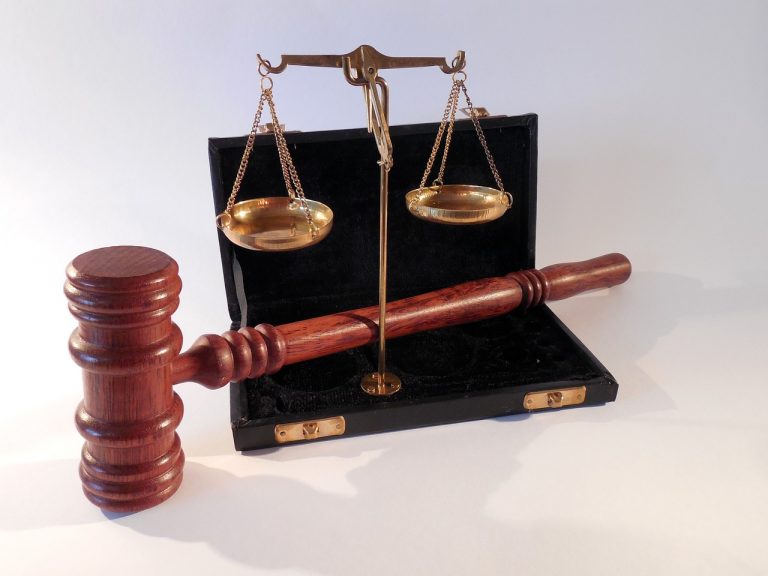The impact of criminal charges on employment background checks is a multifaceted issue, affecting both employers and prospective employees. For employers, these checks serve as an essential tool for evaluating a candidate’s suitability for a role. For candidates, they represent a potential barrier to employment, especially for those with a criminal past. The balance between maintaining workplace safety and avoiding discrimination presents a conundrum. This prompts the inquiry: how can a fair and equitable hiring process be guaranteed while taking into account an individual’s past criminal charges? Let’s examine this intricate issue further.
Understanding Employment Background Checks
The labyrinth of employment background checks may initially seem intimidating to both employers and potential employees. This process, though complex, is essential for maintaining a safe and efficient workplace. Understanding the ins and outs of background check policies can help alleviate concerns and streamline the hiring process.
Employment laws dictate how and when background checks can be conducted. The Fair Credit Reporting Act (FCRA), for instance, sets strict guidelines for employers conducting background checks. This federal law requires employers to obtain written consent from the job applicant before conducting any background check. It also necessitates employers to provide a copy of the report and a summary of the applicant’s rights under the FCRA before taking any adverse action based on the information obtained.
Background check policies vary widely across industries and companies. Some might only require a simple reference check, while others may investigate criminal history, education, employment history, and even credit reports. It’s important for employers to have a clear and consistent policy that aligns with federal and state employment laws to avoid potential litigation, while also ensuring a safe and secure work environment.
The Scope of Criminal Records
While many aspects of background checks are important, delving into the scope of criminal records reveals a vital component of the hiring process. The term ‘scope’ refers to the extent and range of information available in a person’s criminal history. This could include charges, convictions, and sentences from various jurisdictions, such as local, state, and federal courts.
However, the scope isn’t unlimited. There are scope limitations that restrict the type and age of criminal records that employers can consider. For instance, some jurisdictions do not allow employers to use arrests that did not lead to convictions, while others restrict the use of older convictions.
Another key aspect is record accessibility. While some criminal records are public, others might be sealed or expunged depending on the specific circumstances of the case and the laws of the jurisdiction. This can make accessing certain records challenging.
Understanding the scope of criminal records is essential for employers to make informed hiring decisions. Simultaneously, it is equally important for job seekers to know what kind of information might come up in a background check and how it could potentially impact their job prospects.
Felonies vs. Misdemeanors on Background Checks
Distinguishing between felonies and misdemeanors in the context of employment background checks is an important task. Felony classification typically pertains to more serious crimes, usually involving violence, and carries a potential prison sentence of more than a year. The severity of the crime, coupled with the length of the sentence, often poses significant challenges for job applicants with a felony record.
Contrarily, misdemeanors are generally viewed as less severe crimes, including petty theft, public intoxication, or minor traffic violations. The misdemeanor implications on employment background checks are usually less severe, but this does not eliminate the potential for negative consequences. Misdemeanors can still impact an applicant’s chances of securing employment, particularly if the offense is job-related or recent.
In the employment background check process, understanding the difference between felony and misdemeanor charges is vital. Employers must balance the need to maintain a safe workplace with the responsibility to avoid discrimination. They must consider the nature of the crime, the time elapsed since the conviction, and its relevance to the job at hand. As a result, it is essential for job applicants to understand these distinctions and how they may impact their career prospects.
Arrests and Convictions: What’s Visible?
In the context of employment background checks, distinguishing what is visible between arrests and convictions is essential. We will begin by understanding the nuances of arrest records, followed by the visibility of convictions and how these elements can potentially impact one’s employment prospects. This is an important factor to take into account, both for individuals seeking employment and employers conducting these checks.
Understanding Arrest Records
There are numerous intricacies when it comes to understanding arrest records, particularly regarding what is visible on an employment background check. These records provide detailed information about an individual’s arrest history, including the nature of the offenses and their outcomes.
Arrest outcomes are a significant component of these records. They reveal whether the arrest led to a conviction, was dismissed, or is still pending in court. These outcomes are important as they have different legal implications for the individual involved. For instance, a dismissed case could indicate that the individual was not guilty of the alleged offense, whereas a conviction would confirm their guilt.
The legal implications of arrest records are also substantial. While an arrest does not necessarily mean an individual is guilty of a crime, it could impact their employment opportunities. Potential employers may view an arrest record negatively, even if it did not result in a conviction. However, the Equal Employment Opportunity Commission (EEOC) guidelines caution employers against making hasty decisions based solely on arrest records.
Understanding arrest records and their visibility on employment background checks is thus essential for both job seekers and employers. This knowledge can guarantee fair and informed hiring decisions, promoting equal opportunities for all.
Visibility of Convictions
Understanding the visibility of convictions on an employment background check is of utmost importance for both job seekers and employers. Various visibility factors influence whether a conviction will surface during a background check, and understanding these factors can guarantee transparency and fairness in the hiring process.
Firstly, the type of conviction plays a large role in its visibility. Minor offenses may not appear, while more serious crimes are likely to be reported. Conviction types can range from misdemeanors, which typically involve less severe crimes, to felonies, which encompass more serious offenses. The severity of the crime, the associated penalty, and the jurisdiction in which the crime was committed can also affect the visibility.
Secondly, the time elapsed since the conviction can impact its visibility. For instance, older convictions may not appear on a background check depending on the state laws. Additionally, certain states have ‘ban-the-box’ laws that restrict employers from asking about criminal history early in the hiring process.
Impact on Employment
A job applicant’s criminal history can greatly impact their employment opportunities. This is due to the stigma attached to criminal charges and convictions which can make employers wary of hiring an individual with a criminal past. In many sectors, such as finance, healthcare, and education, this can be a significant barrier, as these industries often require clean background checks.
However, not all convictions are treated equally. Some may not be relevant to the job in question, while others may be deemed as serious felonies that raise concerns about the applicant’s ability to perform the job effectively and safely. This is an important distinction, as it allows for some degree of flexibility and fairness in the hiring process.
Stigma reduction plays an essential role in mitigating the negative effects of a criminal history on employment opportunities. This includes initiatives aimed at encouraging employers to evaluate the qualifications and capabilities of an applicant over their past mistakes. This approach recognizes the potential for personal growth and rehabilitation, and can be particularly beneficial in sectors where there is a high demand for skilled labor. It is vital that employers understand how to balance the need for safety and trust in the workplace with fair employment practices.

Duration of Criminal Records
Decades may pass, but the shadow of a criminal record tends to linger, casting a long-term impact on an individual’s employment prospects. The duration of criminal records on an employment background check is critically dependent on several duration factors and record retention policies that vary across jurisdictions.
The record retention period is primarily determined by the severity of the crime, with serious felonies remaining on record for longer durations compared to minor misdemeanors. Certain jurisdictions also have “washout” periods, after which certain offenses are no longer considered in employment decisions. However, these periods can be lengthy, spanning years or even decades.
Duration factors such as the age at which the crime was committed can also influence the length of record retention. For example, juvenile records are typically sealed once the individual reaches adulthood, though this is not a universal rule.
It’s pertinent to note here that these general guidelines could vary considerably based on specific local, state, or federal laws. Employers and individuals should consequently seek appropriate legal counsel to understand how these duration factors and record retention rules apply to their specific circumstances. This knowledge is essential in traversing the complex landscape of employment background checks and criminal records.
Expungement and Sealing of Records
Turning our attention now to the subject of expungement and sealing of records, it is essential to comprehend the processes involved in these legal procedures. Grasping the nuances of expungement will provide a clear understanding of its role in eradicating criminal charges from one’s record. Additionally, exploring the benefits of record sealing will shed light on its impact on employment background checks.
Understanding Expungement Process
In the landscape of criminal law, the process of expungement serves as a significant component. It is a legal procedure that allows individuals with a criminal record to have certain offenses removed or sealed from their record. Understanding this process is essential, particularly when considering how criminal charges can impact employment background checks.
Expungement eligibility varies from one jurisdiction to another, but there are common factors that courts often consider. These include the nature and severity of the offense, the time elapsed since the conviction or completion of the sentence, and the individual’s behavior during that period. Some jurisdictions may also require that the applicant have no pending charges or convictions since the offense they seek to expunge.
The application process for expungement is usually quite detailed and may require legal assistance. Generally, it involves filing a petition or application with the court, notifying relevant parties such as the district attorney’s office, and attending a hearing. The court then reviews the application and decides whether to grant or deny the expungement. It’s important to remember that successful expungement does not guarantee that erased offenses will never appear on a background check, as some exceptions may apply.
Benefits of Record Sealing
With the potential to greatly impact an individual’s life, the sealing of criminal records, or expungement, offers numerous benefits. This process not only provides a clean slate but also opens up a world of opportunities previously unavailable due to a criminal past. The record benefits of this procedure are vast, and the sealing advantages range from personal to professional domains.
The benefits of expungement and sealing of records are multifaceted. They include:
- Enhanced Employment Opportunities: Sealed records are typically not visible to potential employers, increasing the chances of securing a job.
- Eliminating Stigma: Expungement reduces the social stigma associated with a criminal record, aiding in personal rehabilitation.
- Improved Housing Possibilities: Landlords often conduct background checks. Sealed records can increase the chances of securing housing.
- Easier Access to Education and Licenses: Some educational institutions and licensing bodies may deny access based on criminal records. Sealing these records can remove such barriers.
Understanding the sealing advantages and record benefits is key to appreciating the positive impact that expungement can have on an individual’s life, potentially transforming their life trajectory and improving their overall quality of life.
Employers’ Perspective on Criminal Charges
Given the weighty responsibility of ensuring a safe and productive work environment, employers often view criminal charges on an employment background check with significant concern. The presence of such charges can impact their evaluation of a candidate’s character, judgment, and potential risk to the organization, which may consequently influence their hiring decisions.
Employer biases can come into play, as some may associate criminal charges with unreliability, dishonesty, or instability. The severity and nature of the crime, its relevance to the job role, and the time elapsed since the offense are all factors that employers commonly consider. For example, financial institutions might be more wary of hiring individuals with a history of fraud or embezzlement.
However, hiring policies differ across companies. Some have a zero-tolerance approach towards criminal records, while others adopt a more nuanced perspective, considering the context and evidence of rehabilitation. It’s worth noting that certain local and federal laws, such as the Fair Chance Act, restrict employers from outright disqualification of candidates based on criminal records. In sum, employers’ perspectives on criminal charges are shaped by a mix of legal, ethical, and pragmatic considerations.
Tips for Job Seekers With Criminal Records
Maneuvering the job market can be an uphill battle for individuals with criminal records. Discouragement can easily set in when faced with the additional hurdle of a criminal past. However, by implementing effective job application strategies and making informed disclosure decisions, the job hunt can become a more manageable process.
Here are some practical tips for job seekers with criminal records:
- Exploit Your Skills: Focus on your strengths and skills that make you an ideal candidate for the job. Tailor your resume to highlight these strengths.
- Honesty is Key: When it comes to disclosure decisions, honesty is usually the best policy. If asked, be forthright about your criminal past but emphasize your rehabilitation efforts.
- Preparation is Essential: Prepare thoroughly for the interview. Anticipate questions about your past and rehearse your responses. This will help you communicate your story effectively and confidently.
- Seek Professional Assistance: Take advantage of resources available for ex-offenders. These include job placement agencies and career counselors who can provide invaluable guidance.
Frequently Asked Questions
Do All Employers Conduct Background Checks?
Not all employers conduct background checks; it varies based on employer policies and the nature of the job. The types of background checks can also differ considerably, ranging from criminal history to credit checks.
How Can I Check My Own Criminal Record Before Applying for a Job?
You can verify your criminal record’s accuracy via self-check methods. These methods may include requesting a copy from your local police department or using online services that perform public records searches. It’s essential to guarantee information accuracy.
Are Juvenile Criminal Records Viewable on Employment Background Checks?
Juvenile criminal records are typically protected under privacy laws, but certain serious offenses may be viewable. However, record expungement can remove these offences, making them inaccessible during an employment background check.
What Information Will a Potential Employer Receive From My Background Check?
A potential employer, through your background check, may receive various information such as your past employment history, credit reports, education verification, and depending on the background check type, possibly your expunged criminal record.
Can I Be Denied a Job Based on a Misdemeanor Charge?
Yes, a misdemeanor charge can impact your job application. Employers have the right to deny employment based on a criminal record, depending on the nature of the offense and its relevance to the job.





